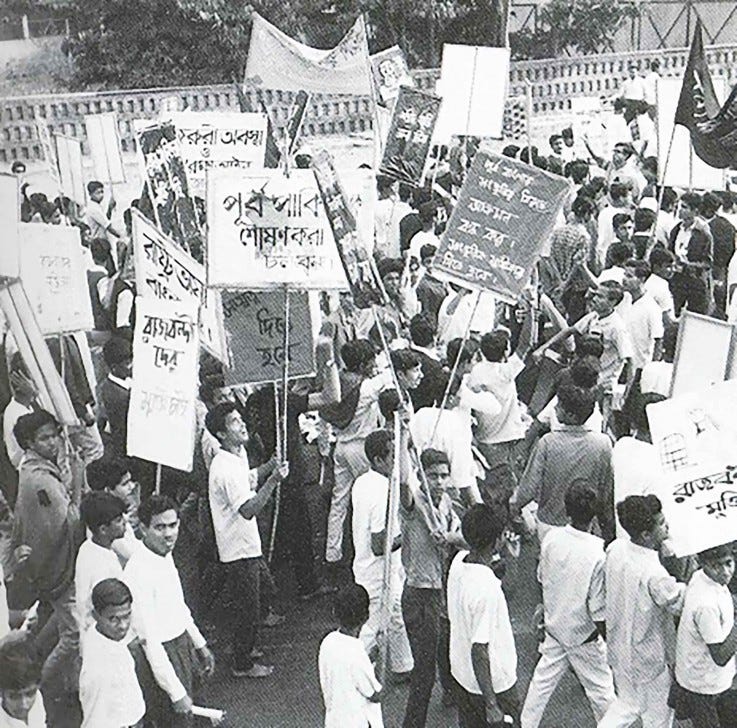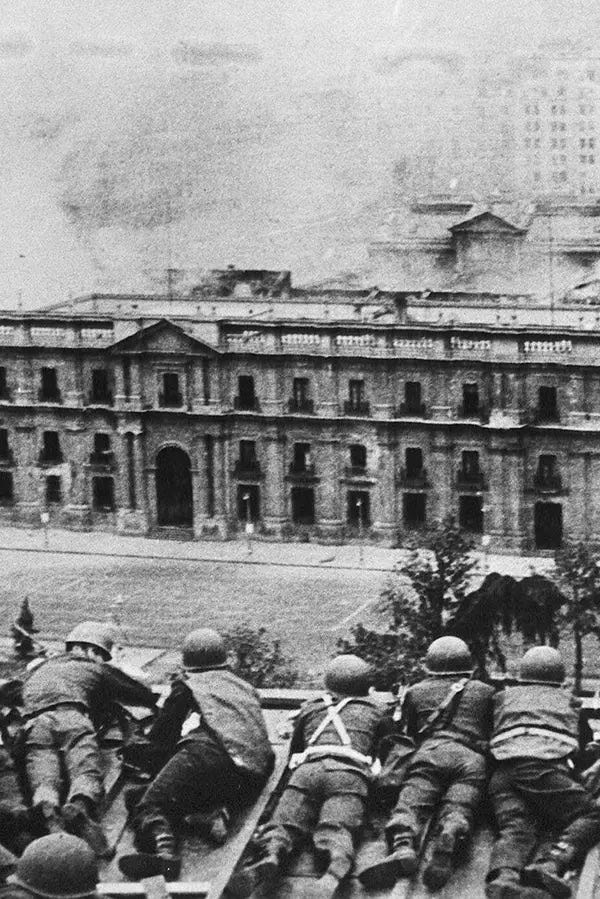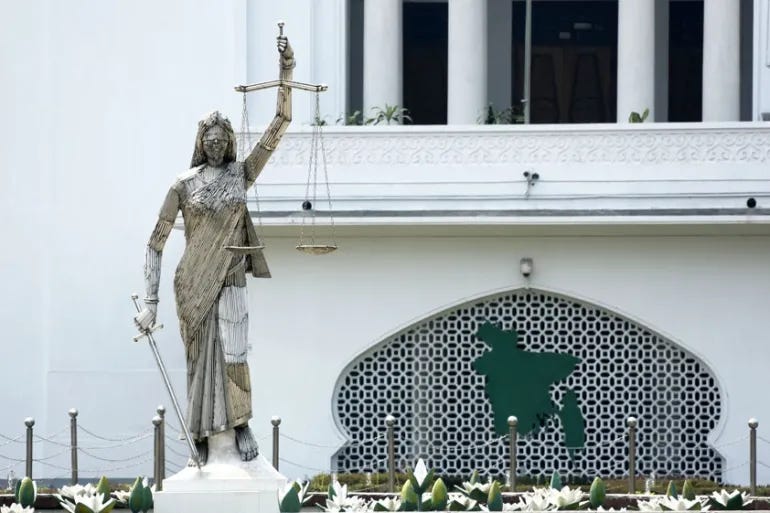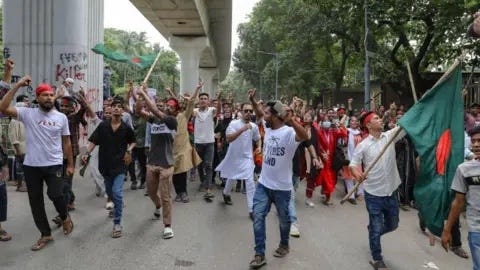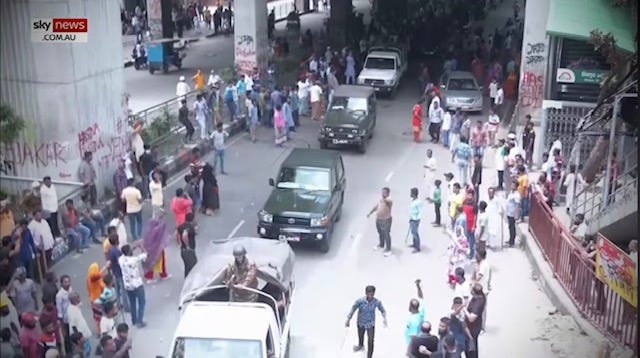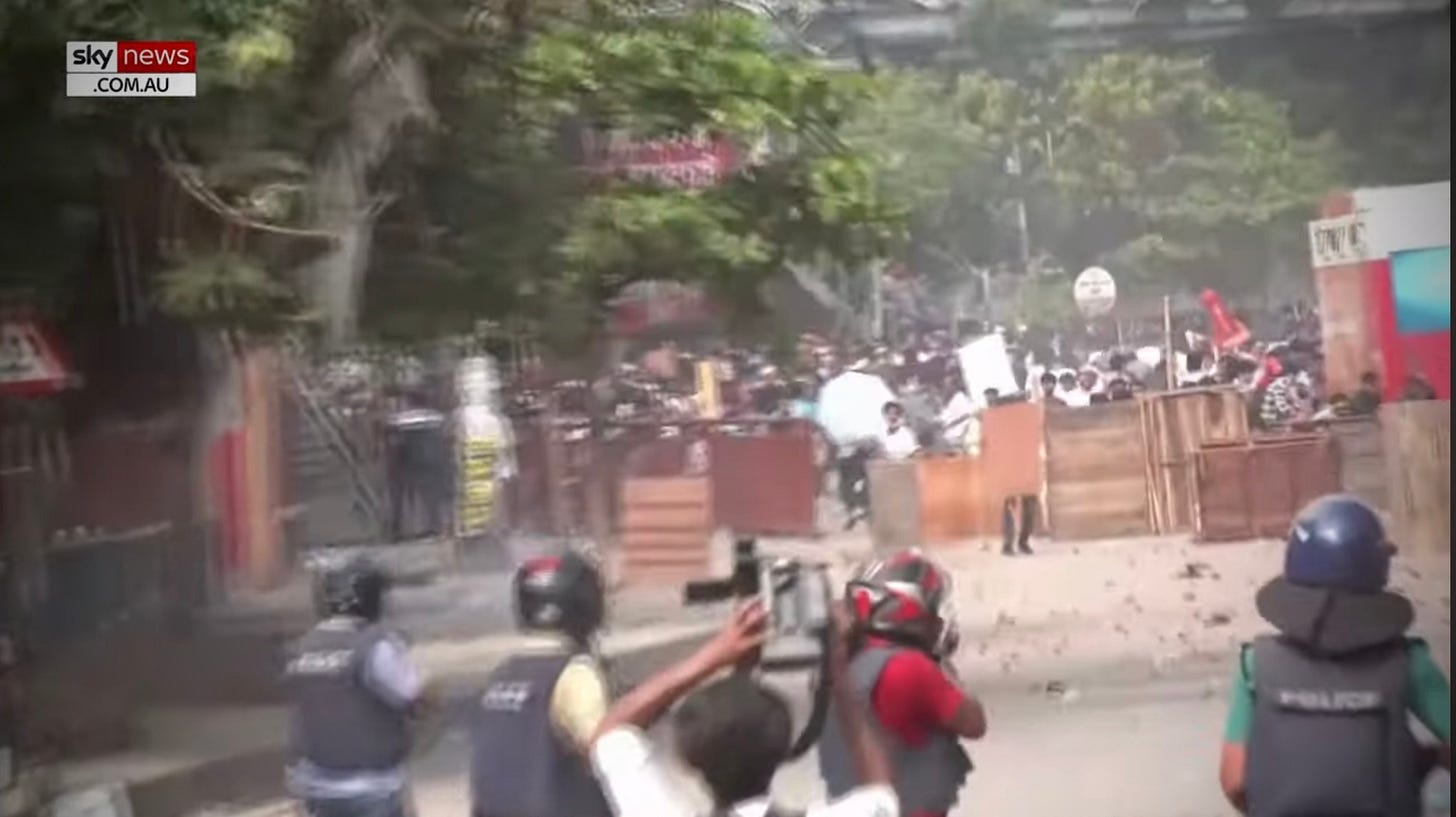Support Bengali Struggle for Democracy!
Indian subcontinent has been rocked by revolutionary upheavals, led by Bengali youth and working people.
Pamphlet
Separation of powers!
Absolute free speech!
No official, “established” religion!
Workers control of industry!
Land for those who work it!
Build a new workers state, police, army!
“The time” is “now!”
— Suggestions to comrades in Bangladesh, in fraternal solidarity.
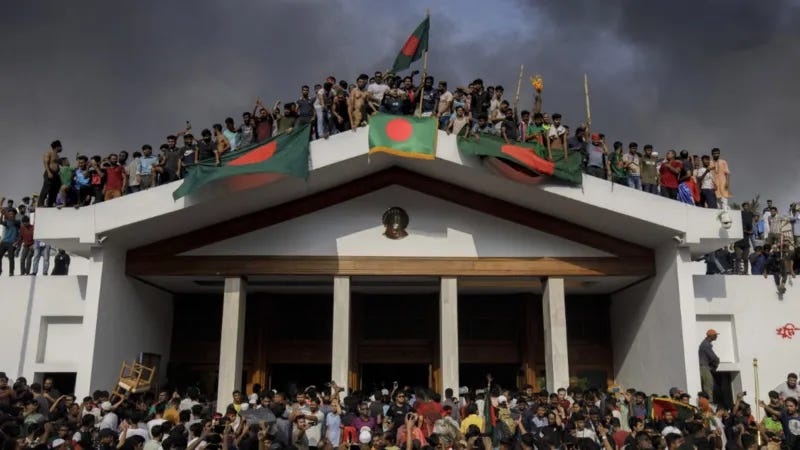
And, for mutual recognition of Israel, Palestine!
Bangladesh has just undergone what many have described, and what I concur in describing as, its second independence revolution.
Having thrown off the shackles of Pakistani colonialism in 1971 in a heroic liberation war, the people of Bengal have since been subject to dictatorial capitalist regimes, be they military dictatorships or corrupt “democratic” governments.
What started as humble and peaceful protests against hiring quotas in the civil service sector soon erupted into a full blown social upheaval, when the regime’s police and thugs initiated repression that would kill and injure hundreds.
After weeks of sustained demonstrations, resulting in the ouster of the 15-year-long Prime Minister, “Sheikh” Hasina Wazed, who fled the country August 5 on a Learjet with her tail between her legs, the Bengali people now have an opportunity to deepen democratic rights in their country and finally realize the unfulfilled socialist aspirations of their nation.
Aspirations betrayed by early leadership that failed to throw off the old army and build a new state, a worker’s and farmer’s state.

The people of Bengal won their independence war against Pakistan with the help of India, who shamefully stood by for nine months as millions of Bengalis were murdered by Pakistani soldiers and police backed by Beijing and Washington, finally intervening in December to save face. Bengalis, who have their own language and culture dating back centuries, discovered their abilities and strengths in their independence struggle, discoveries they’ve not forgotten.
One of the first countries to recognize Bangladesh was actually Cuba who, at the time, was the tip of the spear of world revolution in an epoch of anti-colonialism in the “third world”, as Beijing and Moscow were involved with American “detente”, adding to the revolutionary content and character of the Bangladeshi Revolution. (The Vietnamese Revolution, remember, was likewise betrayed by capitalist Beijing and ultimately by Stalinist Russia, American imperialism’s newest friends.) The bond between Bangladesh and Cuba, although occasionally disrupted by US attempts to strangle them, has never broken. Meetings in support of the “Cuban 5” were held in Bangladesh during their US imprisonment. Any Cuban is granted residency upon arrival to the south Asian country
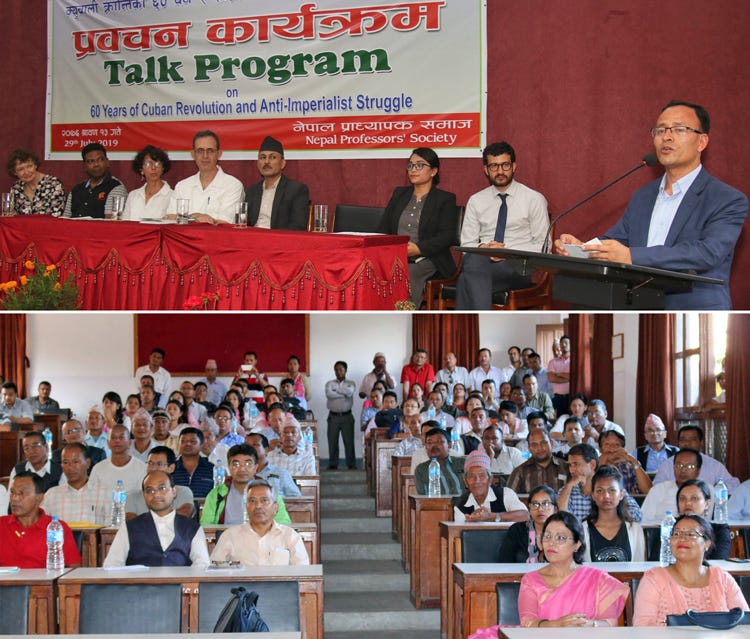
Based on and hailing from the best traditions of the Indian Independence movement, in which many Bengali revolutionaries participated, the revolutionary country led by ‘Sheikh’ Mujibur Rahman assured the mentioning of “socialism” and “secularism” among its top four principles in their founding constitution. In a region with tens of millions of traditional Muslims, albeit Sunni, yet culturally distinct from Arab Muslims, the popular independence movement of Bangladesh fought for the principles of unity (opposing British-styled “partitions”), multi-culturalism, and pluralism.
Wonderful secular traditions and thinkers have come from Bangladesh, including excellent contributions to the “New Atheist” movement of which I still consider myself a part, in the form of Atheist bloggers, writers, and intellectuals who’ve been “martyred” in recent years for their opposition to today’s Muslim fascism, which unsuccessfully tried taking over Bangladesh for years.
As beautiful and heroic as the sacrifices and courage of the Bangladeshi Independence Movement have been, the early struggle was limited and cursed by the same affliction that failed a dozen revolutions throughout the twentieth century across the globe, and that is the lack of authentic revolutionary, Leninist leadership, as there was in the Russian and Cuban Revolutions

After popular revolutions in those two countries threw off their respective dictatorships, their political leaderships (Bolsheviks in Russia and July 26 Movement in Cuba) were prepared to take the next step in building a new state based on the rule of a new class, the working class. This meant creating new institutions, army/police institutions, new systems of administration, and so on.
Whereas in countries where popular revolutions failed to take this crucial second step, and solidify the power of a new order, they allowed for the remnants of the old order to reconstitute, rearm, and retake total power for themselves in bloody and violent counter-revolutions.
On September 11, 1973, this was seen in Chile, where a popular revolution (not unlike the Spanish Revolution of the 1930s) that won elections fair and square, and with a large mandate, was overthrown in a coup. Radical reforms had been introduced but the formation of a new state was not initiated by President Salvador Allende who died that day, as the Presidential Palace was bombed.
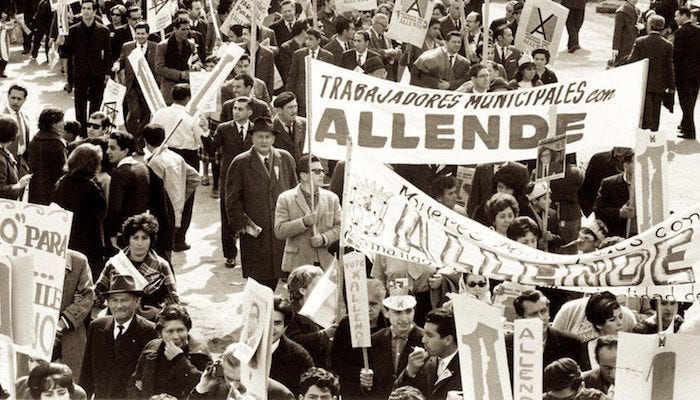
Allende actually took his own life, as he said in his last broadcasted speech to the nation that he would “give his life” for his country, with a bullet. The gun with which Allende took his life was gifted to him by President Fidel Castro during his last state visit to Chile. While Castro was of course warmly and extremely popular in the land of Victor Jara, all rosy and well publicly, in private, the guerilla leader was deeply worried and thus sternly warned the South American politician that his decision to not create a new state—arming the workers and dismissing the old army and police—would lead to an internal revolt against him, which was exactly what happened on that fateful day in 1973. Castro reportedly gave Allende the revolver as a parting gift, commenting that he will need it one day. Sure enough, of all days, the day came on what’s known on the Marxist Left as, “the other 9/11.”
On that same day in 1973, at a meeting on the other side of the world, along the Mediterranean, a meeting of the Non Aligned Movement, in Algeria, a country that had also undergone a democratic and socialist transformation in recent years, Castro and Mujib Rahman—Bangladesh’s independence leader and first elected Prime Minister—met to discuss events in South America and their likely implications. News about Allende had made its way across the ocean and to Algiers by around noon. Castro was of course reportedly very upset, even though he’d correctly anticipated it. Upon first seeing each other, the two revolutionary leaders are said to have embraced and kissed, as they knew the situation around the world and the global class conflict it affected was reaching a boiling point.

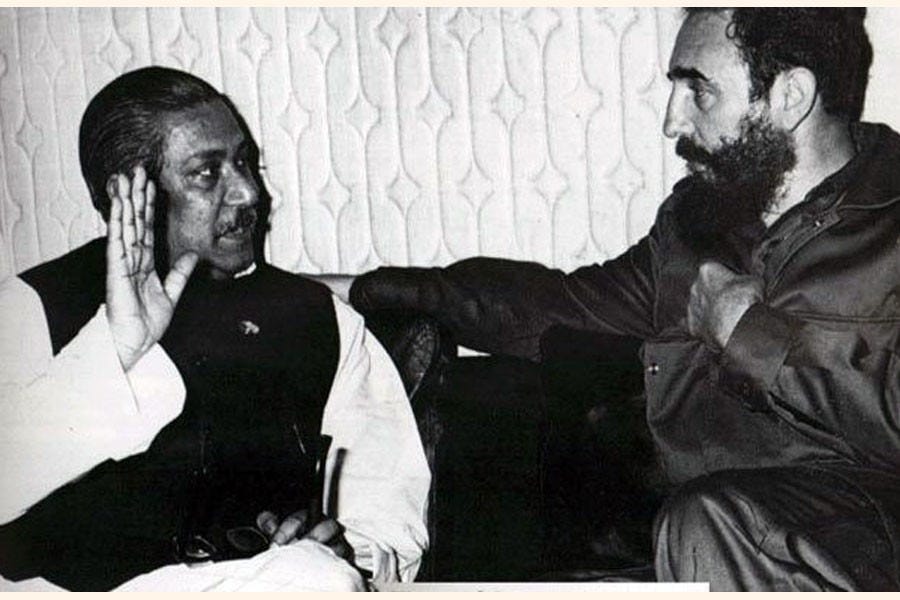
Without a shred of minced words, in classic style, Castro told Rahman he believed the Bengali leader was “next” because, like Allende, “Bangabandhu” (as he's affectionately called) had not formed a new state. Rahman’s election came as the result of an “interim” government that setup the constitutional framework for what would become Bangladesh’s first elections. In this sense, Bangladesh was born as the result of caretaker governments (“CTGs”) as they’re commonly known, meaning the old administrative apparatuses still possessed operational control. Come 1975, Rahman and his family were murdered in their home, by soldiers who’d install a military dictatorship to rule Bangladesh for many years.
A series of coups and short-lived executive terms followed for most of the 70s, 80s and 90s until a modicum of stability was reached in the mid nineties, with Hasina Wazed serving out a full five year term, as well as other opposition parties, and a handful of “caretaker” governments in between. Wazed is one of the two surviving descendants of Rahman, as her and her sister were away studying in West Germany when their father and family were assassinated. Wazed was later elected as the Awami League’s leader in 1981. In ensuing decades, the descendent of Rahman would turn the once revolutionary political organization into a corrupt family business and eventually into a fascist international mafia.
When in power, Wazed was renown for corruption, bribery and nepotism, placing party lackies in civil service jobs at disproportionate rates, welcoming foreign investment for her family and the army to benefit from, alongside the torture and disappearing of all critics and political opponents, plus rigged elections. In more recent years, Wazed allowed impunity for Islamist-fascists responsible for the murder of the aforementioned Bangladeshi atheist bloggers. Her government also agreed to take down a “lady justice” statue erected in front of the country’s supreme court to appease religionists who condemned the beautiful piece of art as “idol worship.” Wazed and her spokespeople have justified these moves, as well as reluctance to remove Islam as the official religion, as “tactical” and “strategic”, given the ninety-percent Muslim majority in the country.
Hasina said at the time of the statue debate that she wasn’t aware how a “Greek” idol was put outside the nation’s Supreme Court premises, deriding the sculpture as “ridiculous.” The statue was of a woman, dressed in the local Sari attire, holding a scale. It calls to mind the image of the Greek goddess, Themis, a giver of oracles who is said to have had an affinity for fairness and justice, also known as “Lady Justice,” often seen in American court rooms. This piece of art and civilization beautifully fuses the two cultures of Greek and Bengali, in a rare moment of actual multi-culturalism, blending the image of lady justice with the local serenities of Bangladesh. This wasn’t the first time.
In 2008, a sculpture of one of Bangladesh’s ancient mystic poets was removed for the same reasons. The sculptor of the Bengali rendition of lady justice said removing it was more painful than his mother’s death. Seeing how Hasina Wazed’s awful son seems to be unable to separate from mommy, as he prepares to assume her throne, it makes sense that a fully individuated person, like Sculptor Mrinal Haque, would love his work more than anyone, as he described the process as, “clearing a dead body.”
An anonymous Awami league leader was quoted in November 2016 as saying that the government would drop Islam as the official state religion “when the time comes.” Islam has been kept as the state religion “for strategic reasons,” the party's Presidium Member and former minister, Abdur Razzaq, told a roundtable. Well, that time is long overdue, has come and is certainly now.
Wazed and her Awami league have been cashing in on the “secular” card for far too long, abusing the word and its authentic meaning. The United States, for example as well as by contrast, is a truly secular country because of the First Amendment to the Bill of Rights, which directly and explicitly forbids the recognition of any official state religion, the famous “wall of separation” between church and state. Sure, there are many religious people who live in the US and many religions have flourished here; but that’s because of the guarantees of the US’ secular constitution.

A distorted definition of “secular” exists within groups who claim ‘secularism’ as the notion of “respecting all religions”, like a kind of “interfaith” ecumenism. This is the kind of faux “secularism” Wazed and her clique have been promoting and instilling. Their party is believed to have substantial backing from the country’s Hindu minority, which makes up roughly eight-percent of the country’s 170 million population. Another part of the Awami coalition is the country’s Christian minority (less than one percent of population).
Wazed, born to a traditionally Muslim family, is unclear about what her religious leanings are at this point, though she seems to lean more towards Hinduism, as she often sides with right-wing Hindu nationalists who dislike Muslims and seems to have cultivated a strong relationship with the Indian Prime Minister, Nehendra Modi, leader of India’s Hindu nationalist party.
While Israel was one of the first countries to recognize Bangladesh’s independence, it never returned the favor, although there were reports that the government was considering signing on to the Abraham Accords. Hasina’s regime ended up signing on to South Africa’s recent complaints against Israel at the international criminal court at the Hague, a move widely praised by the middle-class left who sympathizes with Hamas.
With Hasina out, a new beginning with Israel is also possible.
Recognizing both Israel and Palestinian’s rights to self-determine, would add on to the ever-growing class solidarity across the Middle East and West/Southern Asia that was started by the Abraham Accords. It would also assist in the struggle for secularism, as recognizing Israel would overcome double-standards imposed by the fake multi-culturalists described above, who fail to recognize Jews as a people.
Wazed’s fake secularism and minority rule is reminiscent of Bashar Al-Assad’s dictatorship in Syria. Like Bangladesh, a vast majority of Syria are Sunni Muslims, although a Shia minority exists as well.
Assad belongs not just to Syria’s Shia minority, but a minority within that minority, the Alawite minority/clan. Just as Saddam Hussein (another fake secularist) was part of the Tikrit clan/minority of Iraq in a Shia-majority country, and likewise allowed to so-style his minority Ba’athist rule. Assad and his Baathist Party therefore also claim to be protectors of “minorities” in Syria, such as the Shia minority, Maronite, and other Christian minorities in the country, just as Hasina claims to be the great defender of minorities in Bangladesh.
In an extraordinary display of solidarity, student protestors who overthrew Hasina have organized themselves to protect and defend Hindu temples, negating slanders by capitalist Hindus and their useful idiots in the West against the anti-quota movement. And like Hasina Wazed, the protection of “minorities” doesn’t extend to atheists (or Jews), the most important minority (atheists) in human history.
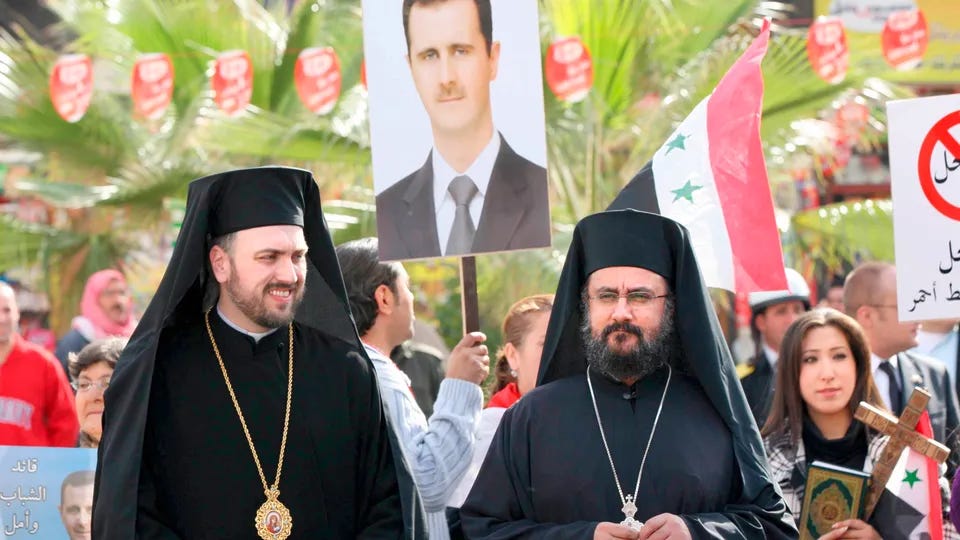
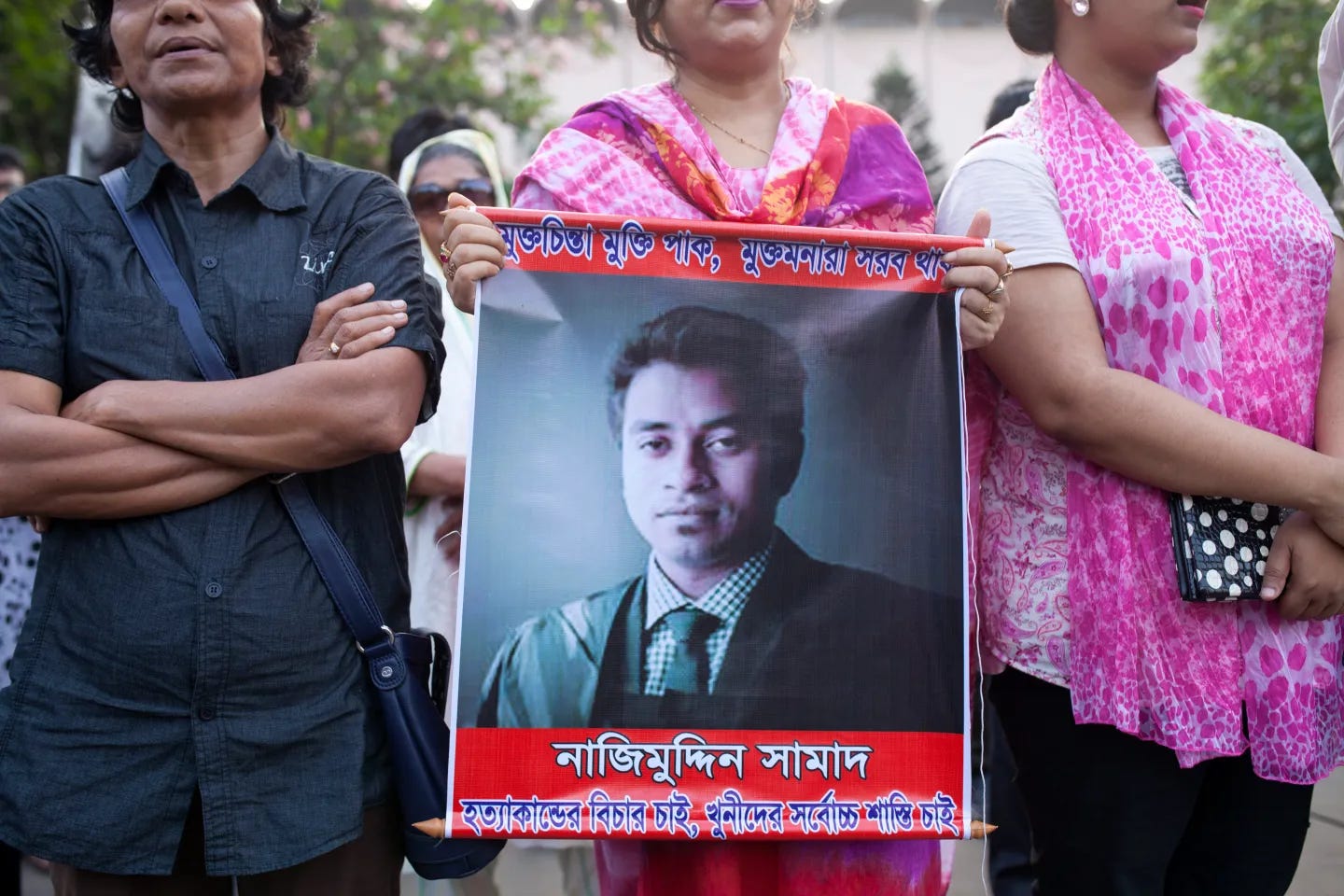

As one would expect in an underdeveloped country with a bourgeoning proletariat being super-exploited by multinational capital, Bangladesh has been one of the hottest frontlines for class struggle worldwide. Over the last 25 years, as more and more women enter the industrial workforce as garment workers at large factories for major clothing brands based in imperialist countries, Bangladeshi garment workers have been fighting the capitalist bosses and winning concessions. This includes concessions after hundreds of workers died inside a factory that collapsed, after bosses threatened to withhold pay if they didn’t go inside the obviously decrepit building. Several others have won raises and improved work conditions, some of which took place during global pandemic lockdowns. Many workers at the time said that while staying home might spare them from Covid, not going to work wouldn’t spare them from hunger.
Hasina Wazed is currently in exile in India, after sustained popular movements across the country forced her to resign and flee. What began as a modest student protest against government quotas for civil service jobs, which in effect favored Wazed’s political party, were met with police and goon violence.
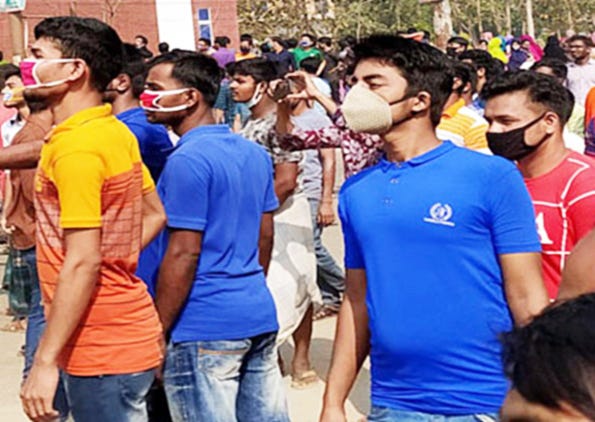
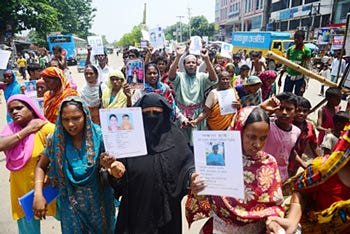
Starting July 2, demonstrations began in Bangladesh’s capital, Dhaka, demanding the cancellation of the quota system. It allowed for more than half of civil service jobs to be reserved for the descendants of independence war fighters, up to grandchildren, regardless of merit, thereby creating a defacto caste system. Students demanded merit be the criteria for government jobs rather than family and nationality, while accepting to maintain quotas for the disabled and the poorest of poor, “backward communities”, another sign of its progressive content.
The spark that lit the gun powder was the High Court’s reinstatement of the quota system in June, having overturned it in 2018 when mass protests against them had erupted for the same reasons. (Tyrants never learn.) The government appealed the decision to the Supreme Court, which is appointed by the President, but students refused to wait for the outcome and demanded a new executive order canceling the quotas immediately. Then, from July 10-12, students staged sit-in demonstrations at various key intersections in the capital and highways outside the city, disrupting traffic on roads, highways and railways.
On July 14, former Prime Minister Hasina Wazed made outrageous, arrogant comments, slandering the protestors as traitors, using a derogatory word used to describe those who collaborated with the Pakistanis during the Liberation War.
On July 15, a senior leader of the fascist Awami League (Hasina’s party), told media that their student wing, the Bangladesh Chhatra League (BCL), would give a “fitting reply” to protesting students. That same day, activists of BCL made good on their promise and attacked anti-quota students at Dhaka University and Dhaka Medical College Hospital, injuring students at the medical college.

On the 16th, clashes spread and six were killed in Dhaka, Chottogram and Rangpur in the north. Students fought back and drove the BCL group out of Dhaka and Rajshahi Universities, ransacking their leaders’ rooms in university campuses. The next day, students tried to hold “absentee funerals” for those killed, but police attacked their gatherings at three universities. University administrators closed campuses and ordered students to vacate their dorms.
Later on the 17th, Hasina addressed the nation on television, expressing fake sorrow over the deaths and announced she would set up a “judicial inquiry” to hold perpetrators accountable, as if she wasn’t aware that her own party attacked them. She urged students to “wait” for the verdict of the Supreme Court and suggested the decision would not disappoint them, which unintentionally revealed it was rigged, otherwise how would she know the verdict in advance?
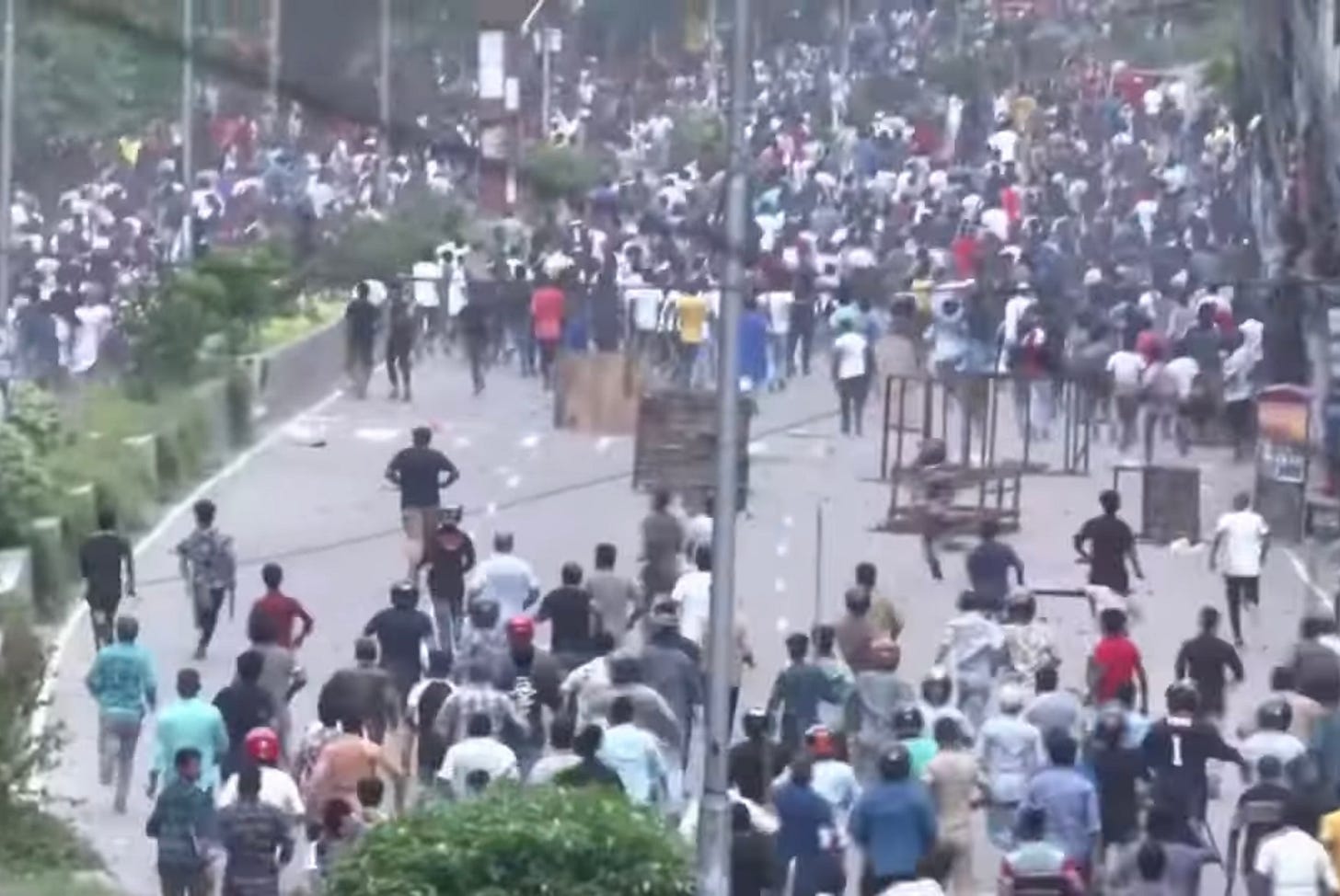
Students rightly responded by calling for a “complete shutdown” of transportation across the country for the next day. The “complete shutdown” began and saw massive violence in Dhaka and in 19 other districts. At least 29 people were confirmed dead, as police and Hasina’s goons opened fire, including with live bullets, shotgun pellets, and rubber bullets. Tens of thousands of students were then joined by scores of working people, employed, unemployed, as well as many from the country’s large farm-working sector, to enforce the shutdown of transportation. Cars, buses, and the state-run television center in Dhaka were set on fire and the city’s Metro Rail transport network was shut down.
Also on the 19th, at least 66 people would be killed in clashes involving protesters and police. According to Voice of America, a US state department news agency, a “mob” freed “nearly 900 inmates from a jail in central Narsingdi district” and looted some “80 firearms and more than 1,000 rounds of ammunition.” The government declared a nighttime curfew and deployed the army to help maintain order.
On the 20th, at least 21 people were killed in the first day of curfew. The government announced two days of “general holiday” while leaders of the no quota movement, and some leaders of the opposition Bangladesh Nationalist Party (BNP), were detained. The Supreme Court delivered its verdict in the quota case on the 21st, abolishing most of the quotas for civil service jobs and leaving 93% of spaces for general applicants; but it was too late. The “curfew” continued and seven more people were killed.
The government formalized the new quota allocation in line with the Supreme Court verdict the next day, all in vain. Organizers of student protests said it’s too little, too late, and that too many people have been killed. No estimate of deaths goes under 300 and one goes as high as 500, though it’s likely higher than both estimates. This heroism and recollection of sacrifice by the protestors, reminded me of how in the film The Wind That Shakes the Barley about Ireland’s liberation war the fighters who opposed a compromise with the British, in favor of declaring a socialist Ireland, cited the blood of their brothers, especially those they had to kill in civil war, being shed in vain, should they capitulate. There’s a lot in common between liberation wars, no matter where they occur.
The “Detective Branch” of Bangladesh’s police department picked up three organizers of the student movement on the 20th, leading the opposition BNP to call for the ouster of the government. Diplomatic missions of 14 Western countries in Dhaka issued a joint letter, calling for “law enforcers” to be held accountable for wrongdoings. The goon squad picked up two more organizers of the student movement. Police continued raids to arrest students. Six organizers of the student movement, while in Detective Branch custody, read out an obviously forced confession/statement ending their agitation. But their colleagues vowed to continue with the movement, and protests resumed the next day.
While the government observed a “mourning day” in memory of those who lost their lives to their own violence, students rightly rejected it. Supporters of the student movement turned their social media profiles red, to show their rejection. They instead called for days of revolution, which was exactly what took place.
The government stupidly banned the Jamaat-e-Islami party and its student wing, Islami Chhatra Shibir, as well as its affiliates from politics, foolishly believing that more repression was the answer. The party was accused of being a terrorist entity. On August 3, student organizers made a demand at a major rally in Dhaka—the resignation of Hasina and the formation of a “national government” headed by a person who is “acceptable to all.” Hasina offered talks but the student-led movement rightly, staunchly and stridently rejected them.
Widespread clashes broke out in Dhaka the 21st, in at least 21 districts of the country. Media reports say at least 90 were killed, including 13 police who were beaten to death by a mob in Sirajganj. The government reimposed an indefinite curfew across the country. But students announced a plan to hold a march to Dhaka from all parts of the country with the aim to force the government to resign. The army and police urged people not to break curfew or defy the law, even though in the background they’re trying to convince Hasina Wazed and her family to leave the country because they could no longer guarantee their safety and because they refused to shoot at the protestors, as the tyrants demanded.
Finally, on August 5, tens of thousands from different parts of Dhaka and the surrounding areas defied the curfew to converge on the capital’s center. The army initially tried stopping the flow but then allowed people to enter. Crowds stormed Hasina’s official residence. By the afternoon, Hasina handed her resignation letter to President Mohammed Shahabuddin and, along with her sister ‘Sheikh’ Rehana, fled to neighboring India. Army chief General, Waker-uz-Zaman, invited several political parties for talks, including Jamaat-e-Islami, who Hasina had banned only days earlier. The general said an interim government would be formed following consultation with the president who subsequently dissolved parliament.
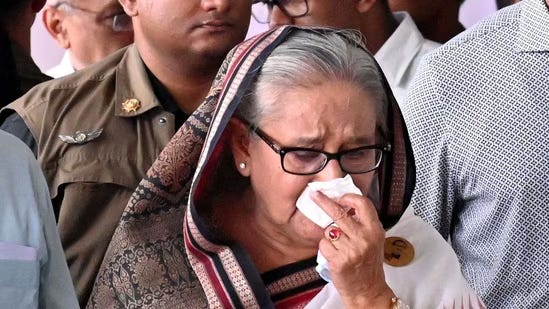
By demand of the popular movement, they called on Nobel Laureate, Professor Muhammad Yunus, to lead an interim government. Yunus, who pioneered micro-finance, has been well received by all sides. He’s known as the poor person’s banker. While his economic philosophy has shown to offer relief to many of Bangladesh’s poor, it is not a comprehensive answer to the problem of exploitation in the industrial sector. In fact, it appears to be an ideological excuse for capitalism, seeking to reform it rather than abolish it. Nevertheless, Yunus is a true secularist and a consistent democrat. He’s the right person for the job.
The army chief ‘promised’ justice for the 300 people who died during the 20 days of violent protests and urged the jubilant crowds to calm down and go home. But groups of people attacked several offices of the outgoing ruling party, as well as a museum dedicated to Hasina’s father, Mujibur Rahman, the founding father of the country. A personality cult had been built around him by the Awami league who have tried to portray the protestors as disloyal. The people prefer to remember all the fighters for independence, not just one leader. Hasina backers have used this and the toppling of a Rahman statue as evidence that the protestors hate the country, when it’s the personality cult they despise.
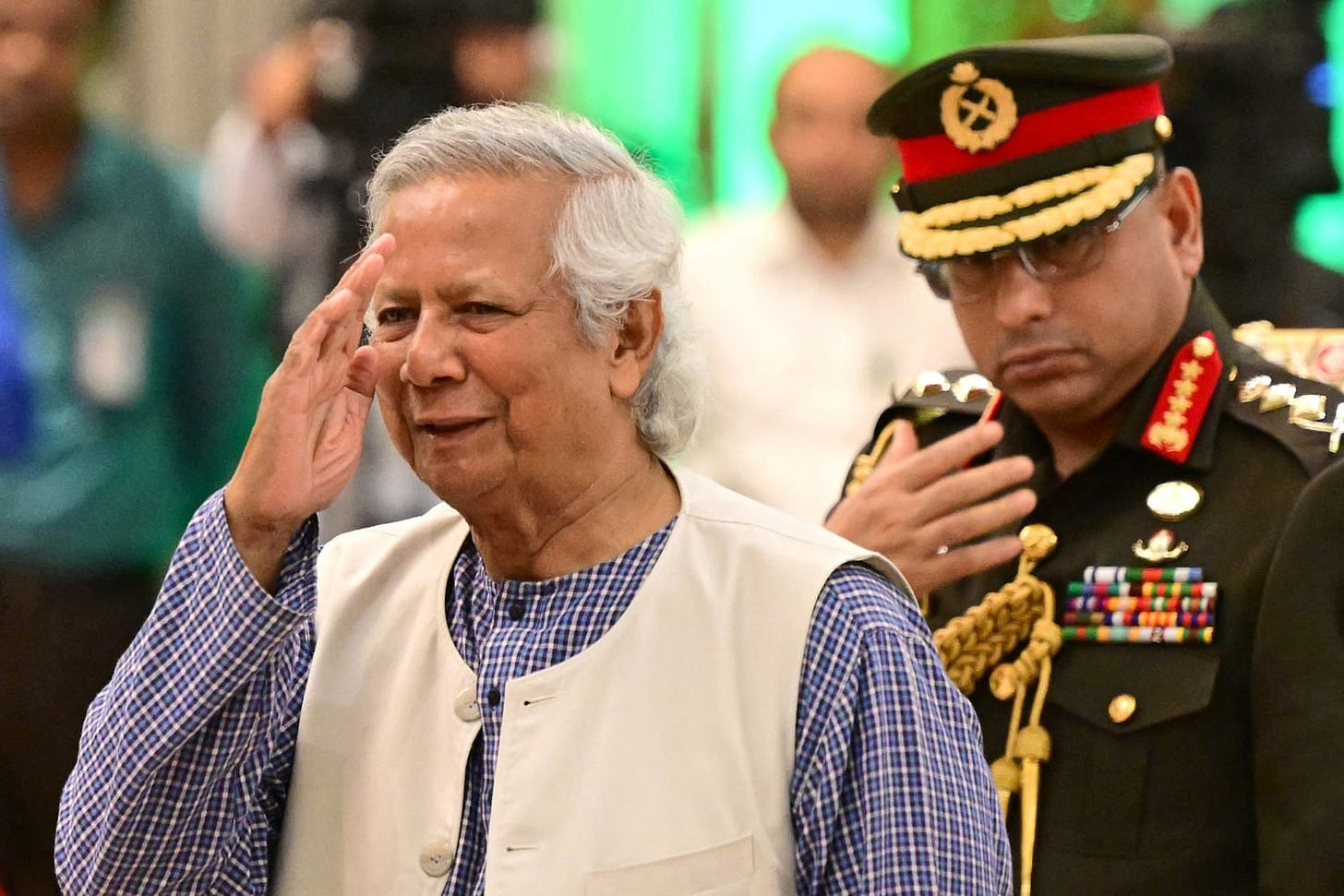
Students and the people who overthrew the tyrannical Hasina are also now controlling traffic and filling-in the duties of the state, forming a new state in-embryo. While the army is on the streets, trying to show that they’re in charge, what we see is a situation of dual power: the embryonic rule of the people and the old rule of the past. It’s really a standoff. With the installation of Professor Muhammad Yunus as interim Prime Minister, set to lead the transitional government, the Bangladeshi people have a historic opportunity before them.
Supporting the Bangladeshi democracy movement is important for working people everywhere. We are an international class, as capitalism is an international system. As we fight for socialism—workers control of production backed by a workers and farmers government—in America, we should also express solidarity and support for revolutionary working-class movements the world over, as the coming socialist world will be one of cooperation between socialist states.
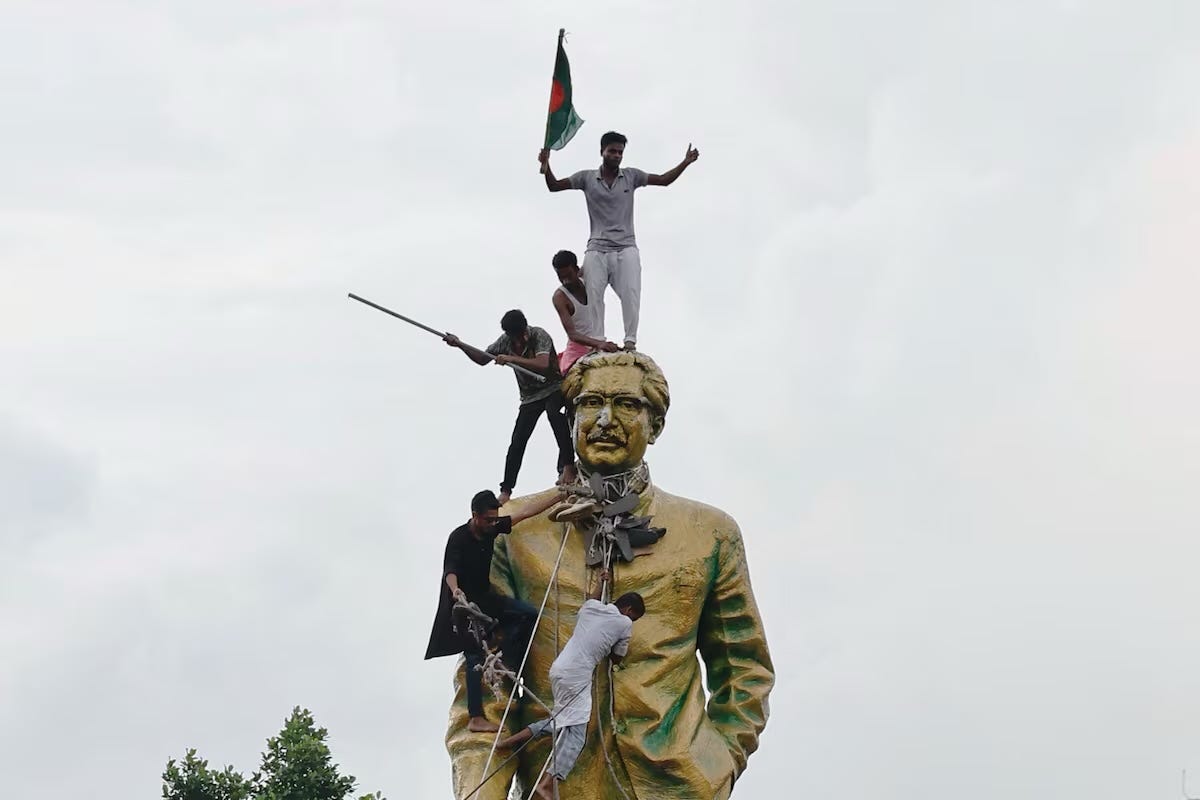
Another reason is that capitalist governments help each other when threatened by their respective working classes, as we have seen international capitalist solidarity with Hasina and her clan from those who’ve covered for her and helped her escape the country where she is now wanted for theft and torture against the people of Bengal. (Extradite Hasina to Bangladesh!)
At the same time, as we have learned from the experience of the class struggle from the past two-hundred years of Marxism, another reason for internationalism is for working people to learn from one another in their common fight against the international capitalist class.
Thus, in the spirit of fraternity and solidarity, I offer my Bangladeshi brothers and sisters a few suggestions for their honorable and courageous struggle that has breathed new life into the world movement.
Having rehearsed the history and current situation in Bangladesh, in trying to apply the lessons of the American class struggle to the situation in southern Asia, it is clear that the people of Bengal have long suffered from police brutality and an injustice system that is in league with the criminals and gangs.
In the US, working people have greatly benefited from the Bill of Rights and the constitutional separation of powers of the judiciary. When the capitalist government is trying to frame you up, those Amendments come in handy. This is why anti-working class forces inside today’s Democratic Party are leading assaults against the presumption of innocence and due process with their politicized witch-hunts against political opponents and their working voters.
This interim government should initiate a democratic process to reform the constitution to guarantee a separation of powers between branches of government as well as include a Bill of Rights for all Bangladeshis, regardless of nationality or religion/nonreligion.
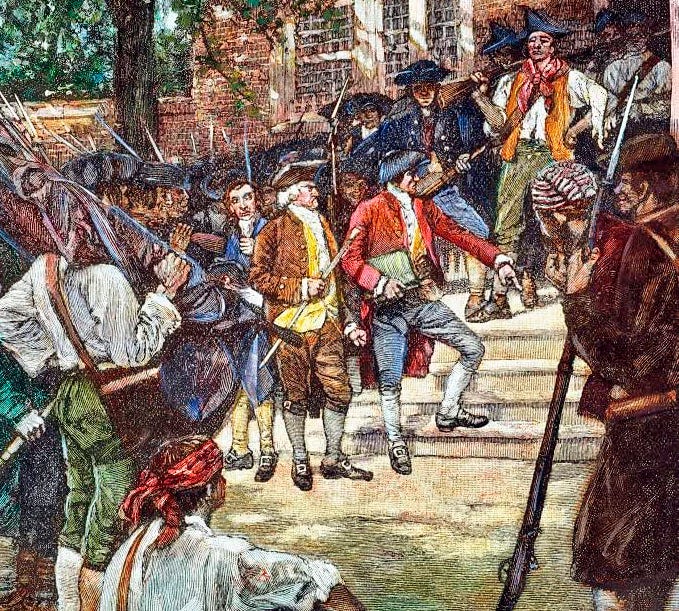
In addition to these constitutional guarantees of individual and civil liberties, the interim government should also nationalize all major industry in the country under workers control. That last part, workers control, is very important. During the rule of Rahman, he mistakenly believed (like President Cardenas in Mexico) that simply “nationalizing” industries was a socialist nationalization on its own.
However, as correctly observed by Leon Trotsky who was exiled in Mexico at the time he wrote this, Cardenas’ nationalization was just capitalist nationalization in a backward country and had nothing in common with workers control of industry. ‘Twas the same with Rahman in the early 70s before the coup.
This time, it is crucial that major industry (like Bangladesh’s textile industry) be nationalized under workers control of production and without a penny of compensation to the bosses!
Next, is the agrarian question. Roughly two-thirds of Bangladesh’s workforce live in rural areas, despite the impressive growth of its industrial sector in the last 30 years. Bangladesh is more developed than Pakistan and will be giving India a run for its money soon. Still, large swaths of its economy is rural and agricultural.
While Professor Yunus’ pioneering micro-loan finance work may have helped many escape the horrors of millennial poverty in an underdeveloped and natural disaster-prone country like Bangladesh, this is no realistic way to liberate the tens of millions of farmers and farmworkers left. The only way is to give them land.
This was done in Russia in their revolution and it was done in Cuba, where land was given to “those who’d never owned anything.” Only a revolutionary government can institute this measure, as the big propertied landlords will resist and deploy their patrons in the army and remnants of the old police to attack the interim government, should it ever embark on such an endeavor.
And finally, heeding the haunting words of Fidel Castro which have stood the test of time, you must not trust, and will eventually have to get rid of, the army. Do not be fooled by their gestures of cooperation that they’ve shown so far, in being agreeable with respect to the interim process. This is the same army that allowed Hasina and her family to run the country like a private business. The only reason the army is not attacking you at the moment is not out of respect for you or for democracy. It’s because they don’t think they can win, for now.
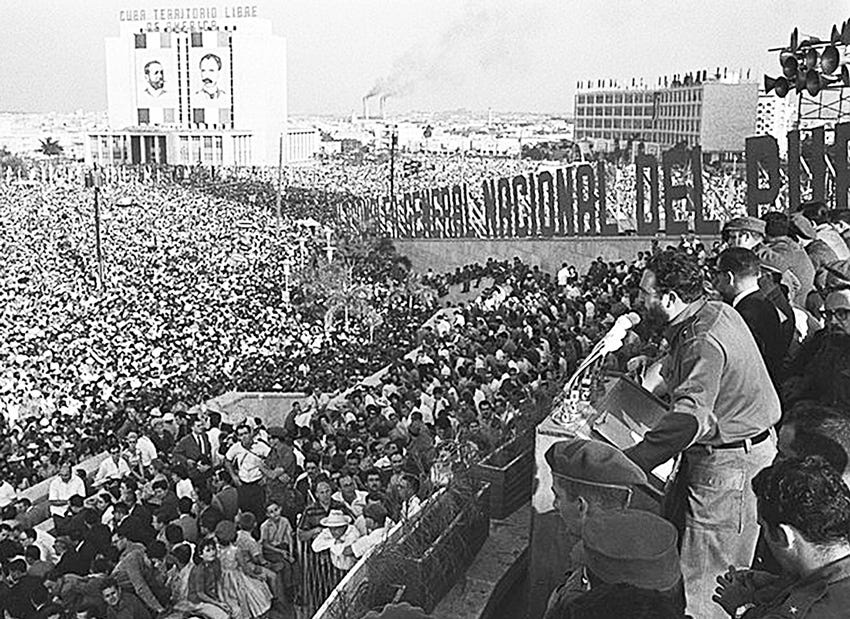
Don’t forget the fights leading up to Hasina’s ultimate ouster. The repressive forces continued fighting until the last minute, right until they realized they were overwhelmed and had to get rid of Hasina in order to preserve themselves from your ire. You are the masters of the situation. You have proven to yourselves, as the struggle has gone on, that you can be the ruling class.
The students who are guiding traffic in Dhaka, keeping business running, and keeping people safe—as well as the student groups who have organized to defend Hindu temples from vandalism—are an inspiration to the world because you show an example of a new world, a new society, a new state. You can form an entire new system and state. You can dismiss the army, send them home and give the arms to the fighters and veterans of the no-quota-movement, those brave and disciplined fighters you know and trust, who proved themselves in battle over the last weeks, and years.
Believe me when I say that the army will turn on you the moment they conclude you’ve put your guard down, especially if and when they get imperialist endorsement to take you out in a coup. History teaches us these lessons.
Syeda Rizwana Hasan, advisor to Yunus, has said in recent hours that the interim government is working with the old police to “restore order” even after they had already retreated. This is a mistake and should be undone.
Fight onward, dear brothers and sisters. You have friends in America. We will make sure our ruling class and its government does not interfere with your revolution. But do not trust the army. Don’t make the same mistake Rahman and Allende made.
They’ll be happy to put Professor Yunus, and yourselves, in front of a firing squad, if they think they can get away with it. Complete your revolution.




